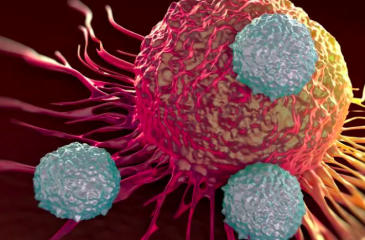As cancer progresses, a patient’s T-cells—which are critical for the immune system to function properly—become increasingly weakened. This can render immunotherapy, a treatment that helps one’s immune system fight cancer, ineffective.
Advancing a promising new treatment strategy
Fortunately, University of Minnesota investigator Dr. Subbaya Subramanian is bringing new hope to cancer patients, particularly those with colorectal cancer, the second-leading cause of cancer-related deaths worldwide.
He’s developing a new treatment approach for colorectal cancer patients that delivers immune-stimulating antigens along with anti-immunosupressant factors (i.e., mTEVs). The revolutionary method unlocks the normal T-cell costimulatory function to boost a patient's immune system.
Funding and guidance from CTSI in 2020 helped Dr. Subramanian advance his treatment closer to the point of helping people by supporting preclinical studies for evaluating its efficacy and antitumor immune response.
This research was supported by the National Institutes of Health’s National Center for Advancing Translational Sciences, grant UL1TR002494. The content is solely the responsibility of the authors and does not necessarily represent the official views of the National Institutes of Health’s National Center for Advancing Translational Sciences.
Forming a start-up
The effort continued building momentum, and in late 2020 Dr. Subramanian formed a start-up, EV Therapeutics, that will eventually license the technology and take over the development.
The treatment has the potential to transform the way cancer is treated, with more than five years of studies and data suggesting it may extend the survival outcomes or completely cure early-stage cancers.

